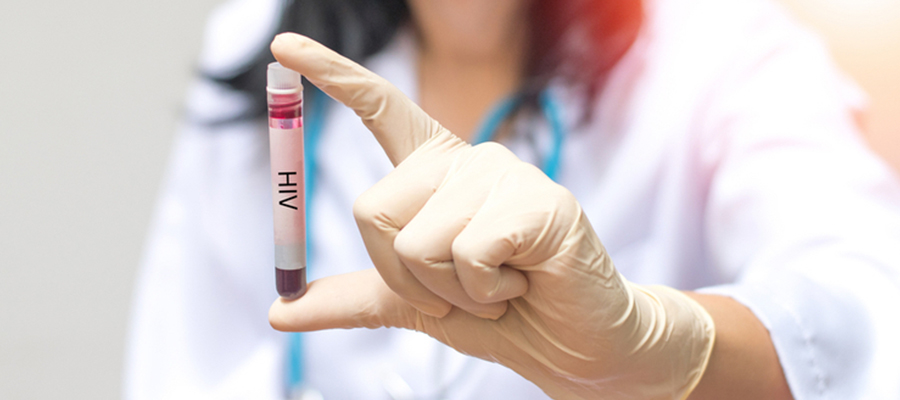
Estimated reading time: 4 minutes and 39 seconds
HIV/AIDS Testing
Comprehensive HIV/AIDS Testing at Aktif International Hospitals
HIV/AIDS testing is a crucial aspect of preventive healthcare and early detection of HIV infection. At Aktif International Hospitals, we offer comprehensive HIV/AIDS testing services to individuals seeking to know their HIV status, access appropriate care and support, and take proactive steps towards managing their health and well-being.
Frequently Asked Questions
What is HIV, and why is testing important?
HIV (Human Immunodeficiency Virus) is a virus that attacks the body’s immune system, specifically targeting CD4 cells, which play a vital role in fighting off infections. If left untreated, HIV can progress to AIDS (Acquired Immunodeficiency Syndrome), a condition characterized by a weakened immune system and increased susceptibility to opportunistic infections and certain cancers. Testing for HIV is essential for several reasons:
- Early detection: Early diagnosis of HIV allows individuals to access appropriate medical care, treatment, and support services, improving health outcomes and quality of life.
- Preventive measures: Knowing one’s HIV status empowers individuals to take preventive measures to reduce the risk of HIV transmission to others, such as practicing safe sex, using condoms, and implementing harm reduction strategies.
- Treatment options: Antiretroviral therapy (ART) can effectively suppress the replication of HIV, reduce viral load, and prevent the progression to AIDS, enabling individuals living with HIV to lead long, healthy lives with proper medical management.
- Pre-exposure prophylaxis (PrEP): Individuals at high risk of HIV infection can benefit from PrEP, a daily medication regimen that can significantly reduce the risk of HIV transmission when taken as prescribed.
Who should get tested for HIV/AIDS?
Testing for HIV/AIDS is recommended for:
- Individuals at risk: Individuals who engage in high-risk behaviors such as unprotected sex, sharing needles or syringes, or having multiple sexual partners should undergo regular HIV testing to know their HIV status and take appropriate preventive measures.
- Pregnant individuals: Routine HIV testing is recommended for pregnant individuals as part of prenatal care to prevent mother-to-child transmission of HIV during pregnancy, childbirth, or breastfeeding.
- Anyone seeking to know their status: HIV testing is available to anyone who wants to know their HIV status, regardless of perceived risk factors. Testing is voluntary, confidential, and can be performed anonymously at Aktif International Hospitals.
What types of HIV/AIDS tests are available at Aktif International Hospitals?
Aktif International Hospitals offers various HIV/AIDS testing options, including:
- HIV antibody test: The most common type of HIV test, which detects antibodies produced by the immune system in response to HIV infection. This test can be performed using blood, oral fluid, or urine samples and typically provides results within minutes (rapid antibody test) or a few days (laboratory-based antibody test).
- Fourth-generation HIV test: A combination test that detects both HIV antibodies and p24 antigens (a protein present in the early stages of HIV infection) to identify recent infections more accurately. This test is performed using blood samples and provides results within a few days.
- HIV RNA test: A nucleic acid amplification test (NAAT) that detects the genetic material (RNA) of HIV in the blood, providing early detection of HIV infection within days to weeks of exposure. This test is highly sensitive and specific but may be more expensive and less widely available than antibody tests.
How is HIV/AIDS testing performed at Aktif International Hospitals?
HIV/AIDS testing at Aktif International Hospitals is conducted in a confidential and supportive environment by trained healthcare professionals. The testing process typically involves:
- Pre-test counseling: A healthcare provider will offer pre-test counseling to discuss the importance of HIV testing, assess individual risk factors, address any concerns or questions, and provide information about testing options and confidentiality.
- Sample collection: A blood, oral fluid, or urine sample will be collected from the individual for testing, depending on the chosen testing method (e.g., rapid antibody test, fourth-generation test, RNA test).
- Testing procedure: The collected sample will be analyzed using the selected testing method to detect HIV antibodies, antigens, or genetic material (RNA) of the virus.
- Post-test counseling: Regardless of the test results, individuals will receive post-test counseling to discuss the implications of the results, provide support, address any emotional or psychological concerns, and offer referrals for additional medical care or support services as needed.
Why choose Aktif International Hospitals for HIV/AIDS testing?
Aktif International Hospitals is committed to providing confidential, compassionate, and culturally sensitive HIV/AIDS testing services for individuals seeking to know their HIV status. Our multidisciplinary team of healthcare professionals is dedicated to ensuring a positive testing experience, respecting individual autonomy, privacy, and confidentiality throughout the testing process. We strive to create a supportive environment where individuals feel empowered to take control of their health, access appropriate care and support services, and live fulfilling lives regardless of their HIV status.
Trust Aktif International Hospitals for Expert HIV/AIDS Testing
If you’re considering HIV/AIDS testing or seeking support and guidance regarding HIV prevention, care, or treatment, trust Aktif International Hospitals to provide expert evaluation, testing, counseling, and support tailored to your needs. Schedule a confidential consultation with our healthcare team today and take proactive steps towards knowing your HIV status, protecting your health, and promoting well-being for yourself and your loved ones.
Author: Nadire Ebri


 TR
TR FR
FR ES
ES RU
RU RO
RO